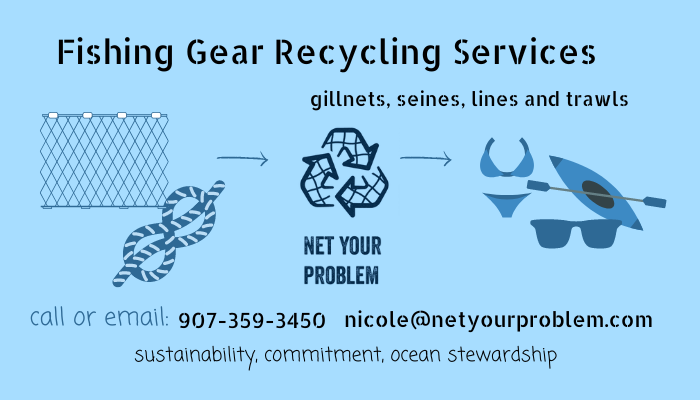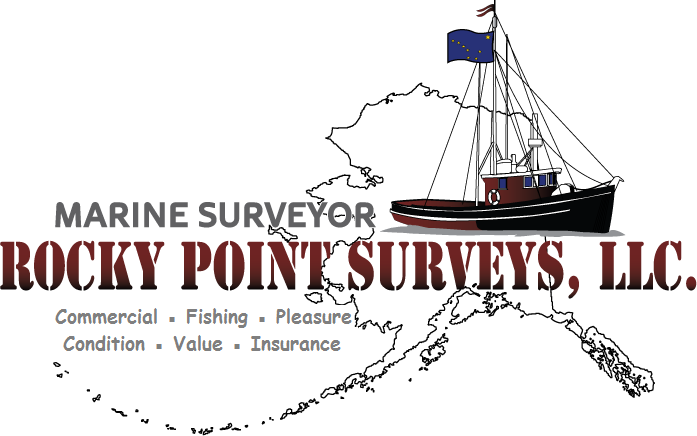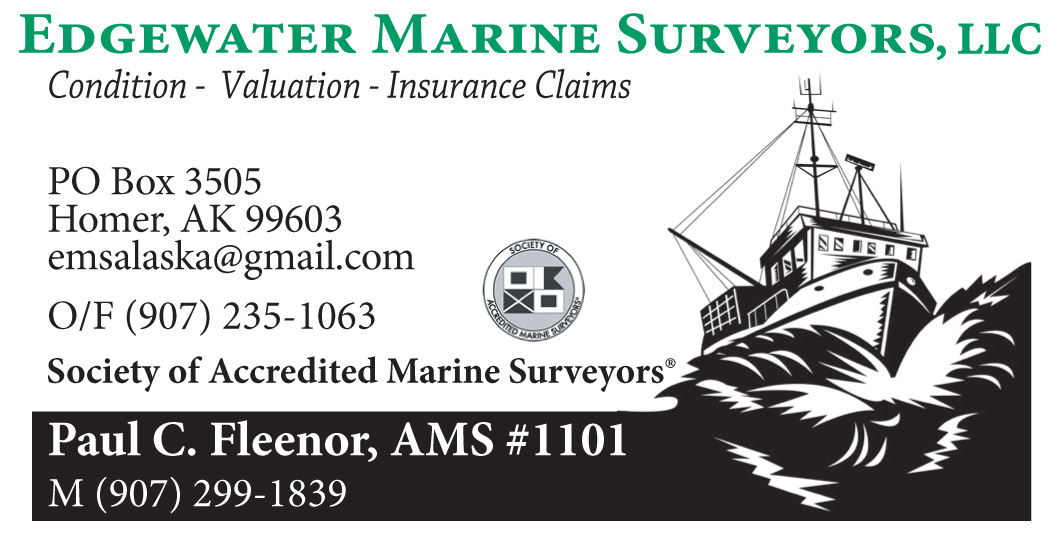This Week's Fish News
September 21, 2023
Seafood News founder John Sackton wrote an interesting opinion piece on the critical affect of high interest rates on the seafood industry. I can't say it's particularly uplifting, but it's certainly worth a read.
Heads up for Bristol Bay drift fishermen: BBRSDA is accepting applications for a non-resident board seat. Applications are due by October 6.
The National Fisheries Institute and Seafood Harvesters of America, together with Pacific Seafoods, PSPA, APA, and Trident Seafoods, have drafted a national sign-on letter outlining priorities for U.S. seafood producers to be included in the 2023 Farm Bill. This is an attempt to get support for the seafood industry within USDA and increase grant funding and loan backing for the industry. For more information on how the Farm Bill could help Alaska, check out this piece by Linda Behnken. If you feel so inclined, read the letter and sign on here.
OBI Seafoods is asking fishermen to support bills to provide more USDA access (like the one mentioned above) and to ban Russian-origin seafood (like the Seafood Reciprocity Act).
NMFS has been working with commercial fishermen in the Gulf of Alaska to study rockfish distribution and abundance, which will hopefully help to inform more sustainable fisheries regulations.
NMFS is analyzing information on 10 separate orcas caught in BSAI groundfish trawls so far this year, and one in NMFS' annual longline survey. Remember when the courts [almost] shut down the Southeast Chinook troll fishery to protect orcas? Ya, me too.
If you're still trying to wrap your head around potential updates to MSA guidelines and why the discussion is both important and controversial, here's a good breakdown of what's at stake.
Tuesday's ADFG town hall with Doug Vincent-Lang garnered quite a turnout, with about 85 fishermen showing up to discuss bycatch, crab, and more. One main takeaway: we need more science. But, with task force after task force, paper after paper, fixed gear fishermen still seem to be getting the short end of the stick when it comes to bycatch reduction.
Speaking of bycatch, ADFG published their Three-River Index, a report of the Chinook salmon run size in the Unalakleet, Yukon, and Kuskokwim Rivers, and it doesn't look good. In fact, it's the lowest on record. The index is used to determine how much Chinook salmon can be caught as bycatch in the Bering Sea pollock trawl fishery, which sounds like a good thing, but the metric only has two levels: high and low. We've been at the "low" level for a few years now, and as Chinook runs continue to decline, there isn't a parameter with which to decrease the trawlers' bycatch cap any further. So... that's pretty cheery.
The Southeast king and Tanner crab task force will hold a hybrid meeting in Petersburg and via Zoom on September 28, to discuss management for the 2024 commercial golden king crab season, potential regulatory changes, and stock assessment.
Narcan, an opioid overdose reversal drug, is now available over the counter in Alaska. If you don't already, please consider carrying one onboard as part of your emergency kit. Having a zero tolerance drug policy on your own boat is great, but, as we all know, sometimes that's not enough. Beyond your own boat, you could be the first to respond to an overdose on another vessel. There's no harm in carrying or administering it, and it literally saves lives.
Russia's salmon season, now wrapping up, is going down as the second largest harvest in its history.
The Coastal Villages Region Fund, an Alaska CDQ group, came out against a proposed marine sanctuary in the Pribilofs, arguing that it could reduce revenue from Bering Sea pollock fisheries.
A few time-sensitive reminders:
The deadline to submit written comments on Agenda Change Requests (ACRs) ahead of the upcoming October Board of Fish work session is Wednesday, September 27. There are many proposals with the potential to affect commercial fishermen throughout the state, including in Bristol Bay, Area M, and Southeast. Here is a list of all ACRs. You can comment in support of or against proposals, or offer additional insight or options here.
Some fishermen who received funds from the Seafood Trade Relief Program have received letters and an invoice from the USDA, requesting repayment of the funds that they received back in 2020. If you are one of the reportedly 209 individuals, be sure to respond to the letter and/or reach out to USDA with questions. More info here from UFA.
Longline and pot vessel owners: the electronic monitoring (EM) pool enrollment is open through November 1. Opting in allows you to skip carrying human observers and fish in more than one regulatory area per trip. Onboard cameras are installed on your vessel at no additional cost to you. Saltwater Inc. is recruiting new vessels for their EM pool. More info here.






